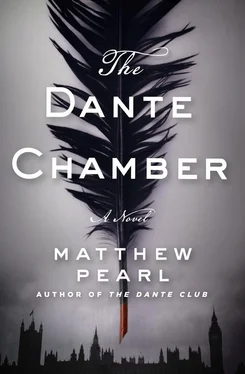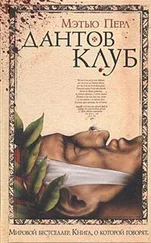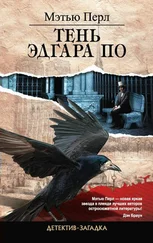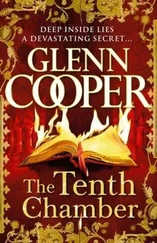“Latin.”
“Can you read it, sweetheart, indeed?” scoffed a man. “Fancy that. A scholar, out here, in petticoats and torn hose.”
“’Tis true!” another girl chimed in, with a touch of awe toward her friend, pointing out that the first girl was half Italian, half Flemish, or something similar, and knew many tongues.
The others cleared space for her.
She hesitated, inhaling a breath of courage before translating the three carved Latin words into English: “Behold, the handmaiden of the Lord.”
Witnesses to a horror split up into those who will never talk about it, and those who never stop. By the time the police descended on North Woolwich, the men and women who had surrounded the dead man’s body began to sort themselves into these factions.
The anxiety of the park-goers who were already skittish around police was hardly eased by the news that Inspector Adolphus Williamson himself was in the caravan of Scotland Yarders. When Dolly Williamson was assigned a case, people who knew anything knew to get out of the way.
Dolly wore a hat half a size too large, so that he was always shifting his head to keep it from falling over his eyes, which had an unsatisfied look to them.
He was correcting the tilt of this hat as he stepped down from his carriage and asked: “Who is he?”
One of the constables replied they had not yet confirmed it. They had notions, said another. They weren’t certain , cautioned the first.
“Don’t hold your tongues with me,” Dolly reprimanded them, removing a sprig of holly he was chewing. “Is his name Jasper Morton?”
(The following reaction was common when it came to Dolly’s pronouncements.)
“How...,” one constable began in astonishment. “Inspector, it’s not possible you could have... before you’ve even...”
Dolly rolled his eyes.
Jasper Morton was a seasoned member of Parliament who represented Bristol. Not a particularly popular or effective legislator, but he held his seat in the House of Commons long enough that political longevity alone ensured his continued election.
“Close your jaw, Constable; you look like you’re going to bite me,” Dolly said. “A dead bloke in this district would not produce ringing at my door any more than the carcass of a cat floating among the rushes of the Thames — unless the corpse made the Home Office nervous. Rest easy that I have my own reasons, beyond those, to think of Morton.”
Dolly’s reasons had to do with a report he came across at Scotland Yard weeks earlier. Approximately a month before that, the legislator’s wife, Eleanor Morton, had mentioned to a police sergeant that Morton had seemed nervous and anxious when he was in public, and though the politician himself insisted nothing was amiss, she worried that some angry constituent was pestering him. Morton did not like to complain about such things, she said with pride in her husband’s stoicism.
None of that was particularly noteworthy. What struck Dolly most in his memory of the report was that when a constable eventually attempted to interview the Honorable Mr. Morton about Mrs. Morton’s concerns, he could not find him.
“Injuries?” Dolly asked as they approached the body.
The hideous sight had remained in the same state as when first illuminated by the onlookers, though now expert eyes were trained on it. The massive stone fit around the neck and shoulders almost perfectly. The dead man’s head hung down loosely.
Another constable answered him. “Broken neck, Inspector. This is some kind of stone contraption — like a yoke made for a man instead of an ox — and it’s been attached to the poor fellow. No other violence done to the body. Real mystery, isn’t it?”
There were words etched on the stone — Ecce ancilla Dei — and they were scrambling to fetch a professor of Latin to consult with Dolly.
“Don’t bother. I can read it myself,” Dolly said, gnashing the sprig again between two side molars. “Now cover that up with your coat. I want no one else to see those words who hasn’t.”
To himself, he repeated over and over, trying to will it into making some sense: Behold, the handmaiden of the Lord.
He thought about the inscription and thought about the word the frightened constable chose: mystery . A mystery, by strict definition, was an event that could not be understood. Mysteries were for religions; miracles, things tucked away in holy scrolls. The peculiarities of this killing were neither haphazard nor the mark of the insane. If they were understood by someone, anyone — and certainly they were understood by whoever did it — Dolly would not be far behind. Besides, there were other elements to consider. The public place. The prominent man as the victim. A human yoke made of stone. That inscription. The timing, at the break of day. Nothing hidden about this, no secret scrolls here — this was a page all London was meant to see.
Dolly knew there was one person who would not have missed watching it for all the world: the culprit.
Like the sun, her routine could be counted on day in and day out. Fixing breakfast for herself and her mother. Sitting at the sagging but well-organized desk in the drawing room of their small home on Euston Square and replying to, perhaps, a magazine asking if she wished to publish new verses ( Thank you, but no , was her usual answer), inquiries after her mother’s health ( Hale and strong, thank you ), bills for the latest repair at their home ( Thank you, enclosed ), notes from Gabriel beseeching her to call on Tudor House to see a sketch or read a new poem. She would keep copies of any letter she wrote in case the original was lost, and then after a few days she would burn the copy in the fireplace on the other side of the room. If she felt the call to do so, she would write poetry into one of her small notebooks. When she finally left their house, there was church to attend, the market to get to, Saint Mary’s to visit, her aunts to take on errands ( We three old ladies , she would say only half joking; she was not yet forty), her father’s grave from which to clear away leaves and pine needles. No wonder Christina would say she only wore clothes fit for ten miles of plowing.
On this day, in the great hall of Saint Mary’s home for fallen women, she paused at the threshold, a figure elegant and slender. In her muslin cap with lace edges and dark veil, she blended in with the Anglican nuns in charge. Christina was not part of their sisterhood, though by now the nuns spoke to their “associate sister” as though she were, taking the liberty of referring to her as Sister Christina. For ten years, she had been coming to Saint Mary’s penitentiary — no prison, as the word was sometimes used, but an institution of reform — to help the nuns take care of women like the new arrival at the front of the line shyly holding out her wooden bowl for her first filling meal in weeks.
Christina found peace here, a relief to know that her labors while at this charity home were worthy — assisting these women, many having come from foreign countries, most terribly young, though some her own age. It gave her a refuge different from what it gave the desperate women. Those women suffered because of what they had done, while Christina often suffered over what she had not.
But this Sunday, by all appearances similar to most other days, felt incomplete. She’d had an uneasy feeling when bidding her mother farewell after church, and the feeling had not left. Her lithe fingers, emerging from long black sleeves, trembled as she ladled food. Behind that veil, her hazel-gray, oval eyes conveyed a general fearfulness. Even Ethel looked over with concern at the thirty-nine-year-old helper who always held her head high and greeted her and her fellow inhabitants without judgment.
Читать дальше












